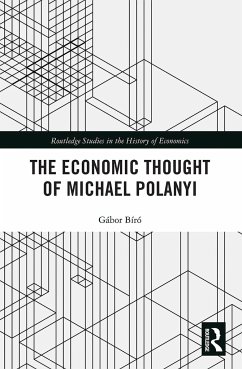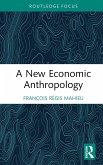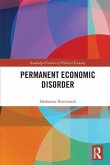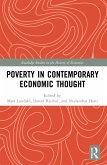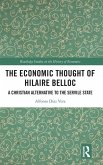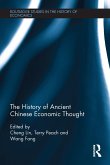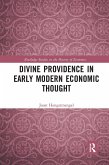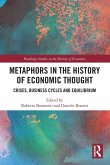Michael Polanyi is most famous for his work in chemistry and the philosophy of science, but in the 1930s and 1940s he made an important contribution to economics.
Drawing on rich archival materials of Polanyi and his correspondents, Gábor Bíró explores their competing worldviews and their struggles to popularize their visions of the economy, economic expertise and democracy. Special focus is given to Polanyi's pioneering economics film and postmodern ideas.
This volume will be of interest to advanced students and researchers of the history of economics, philosophy of science, and science and technology studies.
Drawing on rich archival materials of Polanyi and his correspondents, Gábor Bíró explores their competing worldviews and their struggles to popularize their visions of the economy, economic expertise and democracy. Special focus is given to Polanyi's pioneering economics film and postmodern ideas.
This volume will be of interest to advanced students and researchers of the history of economics, philosophy of science, and science and technology studies.
"Bíró certainly succeeds in making clear that there are lots of unexplored connections between economics and the thought of Michael Polanyi. His discussion of Polanyi's film is original and succeeds in moving beyond the realm of what historians of economics typically consider as "their corpus"."
Erwin Dekker, Erasmus University Rotterdam, Journal of the History of Economic Thought
"Biro's book is thoroughly researched and well worth reading for insights not only into Polanyi's economic ideas, but also into the many facets of economic theory during the 1930's and 1940's."
Mary Jo Nye, Oregon State University, USA, Metascience
"Gábor Bíró has told a detailed and less known story about an unorthodox economist and humanist, Michael Polanyi. [It...] is a vivid example of how to put historical excavation in the service of telling grand stories about science and society."
Adam Tamas Tuboly, Hungarian Academy of Sciences, History of European Ideas
"As Gábor Bíró (2019) argues clearly in his book, from the 1930s to the 1960s, Michael Polanyi charted a liberal-democratic way forward that differs from both socialism and from laissez faire, minimal state varieties of liberalism or libertarianism."
Geoffrey M. Hodgson, Loughborough University London, Tradition & Discovery: The Polanyi Society Periodical
"The great merit of Bíró's book is in his analysis of the epistolary Polanyi-the letters he received and wrote in the 1930s, when he was thinking about the problem of economics, and came to the view that economic education was necessary to create the right kind of social consciousness to serve as the basis of the right kind of interventions."
Stephen Turner, University of South Florida, Tradition & Discovery: The Polanyi Society Periodical
Erwin Dekker, Erasmus University Rotterdam, Journal of the History of Economic Thought
"Biro's book is thoroughly researched and well worth reading for insights not only into Polanyi's economic ideas, but also into the many facets of economic theory during the 1930's and 1940's."
Mary Jo Nye, Oregon State University, USA, Metascience
"Gábor Bíró has told a detailed and less known story about an unorthodox economist and humanist, Michael Polanyi. [It...] is a vivid example of how to put historical excavation in the service of telling grand stories about science and society."
Adam Tamas Tuboly, Hungarian Academy of Sciences, History of European Ideas
"As Gábor Bíró (2019) argues clearly in his book, from the 1930s to the 1960s, Michael Polanyi charted a liberal-democratic way forward that differs from both socialism and from laissez faire, minimal state varieties of liberalism or libertarianism."
Geoffrey M. Hodgson, Loughborough University London, Tradition & Discovery: The Polanyi Society Periodical
"The great merit of Bíró's book is in his analysis of the epistolary Polanyi-the letters he received and wrote in the 1930s, when he was thinking about the problem of economics, and came to the view that economic education was necessary to create the right kind of social consciousness to serve as the basis of the right kind of interventions."
Stephen Turner, University of South Florida, Tradition & Discovery: The Polanyi Society Periodical

